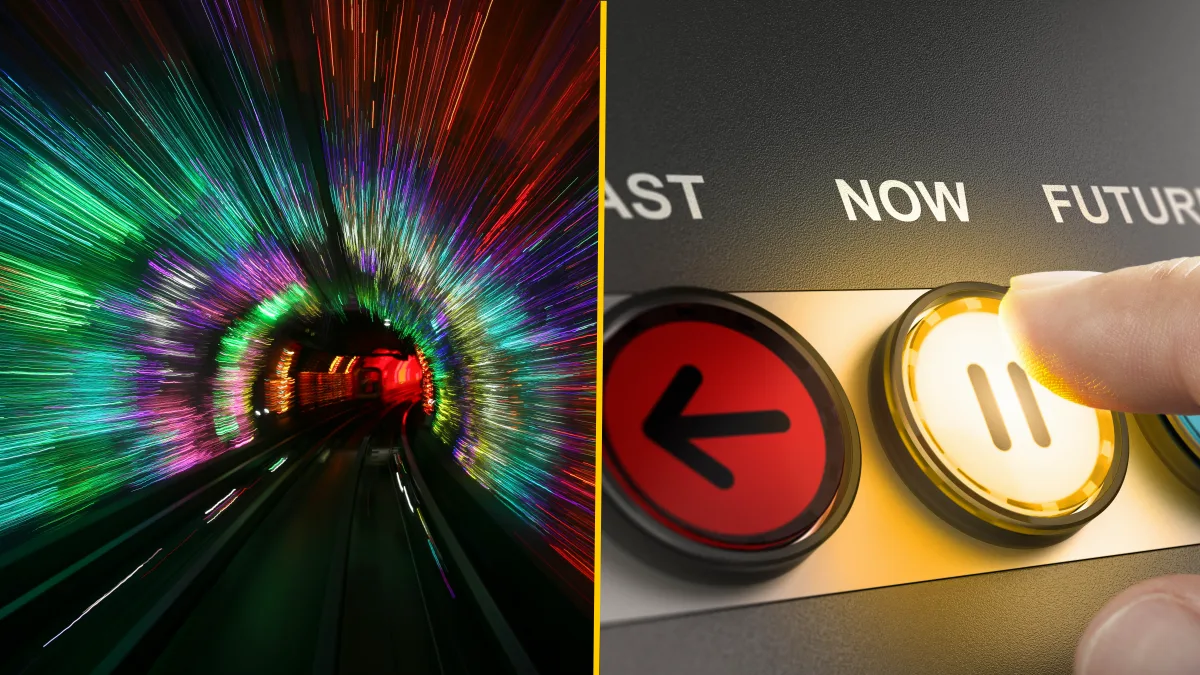Is time travel possible in 2050? While time travel has long been a favorite theme in science fiction, scientists are still debating whether it’s truly achievable—especially within the next few decades.
As of now, no confirmed scientific method exists to send humans forward or backward in time at will, but advances in physics and technology continue to push the boundaries of what we understand about space-time.
Some theories in modern physics, like Einstein’s theory of relativity, suggest that time travel—at least to the future—is theoretically possible.
For example, astronauts traveling at near-light speeds would experience time more slowly relative to those on Earth, a phenomenon known as time dilation. However, creating machines or conditions that allow practical time travel is a challenge science hasn’t solved yet.
By 2050, could this change? Some experts believe breakthroughs in quantum mechanics, gravitational research, or even the discovery of wormholes might open doors to time manipulation. Others argue we’re still centuries away from overcoming the energy and stability problems these ideas present.
Another layer to the debate is the ethical and philosophical impact of time travel. If it becomes possible, who controls it? Could it alter history or the future? These questions remain purely speculative but are taken seriously by some futurists and physicists.
In reality, time travel by 2050 is unlikely to look like the dramatic leaps we see in movies. However, small-scale developments—like time-based simulations, relativity-based experiments, and deeper understanding of time itself—may bring us closer than ever before.
What Is Time Travel?
Time travel is the concept of moving between different points in time—just as we move between places in space. It involves the ability to travel either into the future or the past, bypassing the normal flow of time that we all experience. While time travel is a popular idea in science fiction, it also has real foundations in theoretical physics.
In basic terms, time travel means jumping ahead or going back to a different moment in time, rather than living through each second in a linear progression. Stories and movies often show characters using machines or portals to transport themselves through time, raising fascinating possibilities and paradoxes.
Scientifically, the most credible theory that supports time travel comes from Albert Einstein’s theory of relativity. It states that time is not fixed—it can stretch or compress depending on speed and gravity.
This leads to a real-world phenomenon called time dilation, where time moves slower for objects traveling at speeds close to light, or near extremely massive gravitational fields. In this sense, astronauts on fast-moving spacecraft could technically “travel” into the future compared to people on Earth.
However, traveling back in time is much more controversial and speculative. Theoretical models like wormholes—tunnels through space-time—suggest it could be possible, but there’s no experimental proof yet.
There are also deep concerns about paradoxes, like the famous “grandfather paradox,” where changing the past could affect the present or future in impossible ways.
So, what is time travel? It’s both a real scientific idea and a fascinating mystery. While we haven’t cracked the code to make it practical, the laws of physics haven’t ruled it out entirely—and that keeps hope alive for future breakthroughs.
The Science Behind Time Travel

The science behind time travel is rooted in the laws of physics, particularly Einstein’s theory of relativity, which revolutionized how we understand time and space.
According to his theory, time isn’t a fixed, universal constant—it’s flexible and can stretch or contract depending on how fast you move or how close you are to a massive object. This concept, known as time dilation, provides a scientific basis for time travel—at least into the future.
For example, astronauts traveling at speeds near the speed of light would experience time more slowly than people on Earth.
This means they could return from a mission and find that more time has passed at home than they experienced personally—essentially moving forward in time. This phenomenon has been confirmed in small ways using precise atomic clocks aboard satellites and aircraft.
But what about traveling back in time? That’s where things become far more complex and theoretical. Some scientists suggest that wormholes—hypothetical tunnels in space-time—could allow backward travel if one end were accelerated to near-light speed and then returned.
Others point to concepts like cosmic strings or closed time-like curves as possible time loops. However, these ideas remain speculative and unproven, with major challenges in terms of energy requirements, stability, and paradox prevention.
Another issue is the grandfather paradox—the idea that changing something in the past could create logical contradictions in the present. Some physicists propose that multiverse theory—the existence of parallel timelines—could allow backward time travel without changing our current reality.
While current science supports limited forms of time dilation, true time travel remains theoretical. Still, advances in quantum mechanics and general relativity continue to push the boundaries of what might be possible in the future.
Time Travel Theories Gaining Traction
While time travel remains a theoretical concept, several scientific ideas are gaining traction as potential pathways to making it a reality—or at least explaining how it might work. These emerging theories are based on real physics, though many still face enormous technological and practical challenges.
One of the most discussed ideas is time dilation, grounded in Einstein’s theory of relativity. This has already been demonstrated in experiments with high-speed travel and gravity—showing that time passes more slowly for objects moving near the speed of light or in strong gravitational fields. It suggests that future-directed time travel is not only possible, but already happening in small ways.
Another widely studied theory involves wormholes—hypothetical tunnels through space-time that could connect distant points in the universe.
If one end of a wormhole were accelerated to near-light speed and then brought back, the time between the two ends could be offset, potentially allowing travel between the past and future. While wormholes remain purely theoretical, they are supported by solutions in general relativity and are the focus of ongoing research.
The quantum realm also offers intriguing possibilities. Some interpretations of quantum mechanics, such as the many-worlds theory, propose that time travel to the past could be possible if it involves jumping into an alternate timeline, thereby avoiding paradoxes.
Cosmic strings, hypothetical defects in the fabric of space-time, are another theory. These extremely dense, narrow objects—if they exist—could warp space-time enough to create closed time loops.
Though none of these theories have been proven or practically implemented, they’re taken seriously by some of the world’s top physicists. As our understanding of space-time and quantum physics deepens, the line between science fiction and science fact continues to blur—keeping the door open for future discoveries.
What Leading Scientists Predict for 2050
When it comes to time travel, leading scientists remain both cautious and curious. While most agree that practical time travel by 2050 is highly unlikely, many predict that ongoing advances in physics and technology could bring us closer to understanding the mechanics of time in ways that were once purely theoretical.
Physicist Michio Kaku, a well-known futurist, believes time travel into the future is consistent with Einstein’s theory of relativity and that by 2050, we could see experiments that push the boundaries of time dilation—perhaps even aboard spacecraft capable of near-light speeds.
While we won’t be building “time machines” any time soon, he suggests we may harness elements of time manipulation through gravity and speed.
Stephen Hawking, before his passing, acknowledged the possibility of time travel through wormholes, though he believed the energy required to stabilize one would be beyond our reach in the near future. Still, his willingness to entertain the idea has inspired further research.
Other physicists, such as Sean Carroll and Brian Greene, argue that the laws of physics don’t forbid time travel outright—but any real application, especially into the past, would require breakthroughs in quantum gravity, a theory not yet fully developed.
Some scientists are now exploring the possibility that quantum entanglement and closed time-like curves could offer insights into how particles, and maybe even information, could loop through time.
In summary, most experts agree that we won’t be stepping into time machines by 2050. However, by then, we may better understand time as a dimension, experiment more deeply with time-based effects like dilation, and possibly even identify new clues within quantum physics that point toward more advanced forms of time manipulation.
Is Technology Catching Up with Sci-Fi?

For decades, time travel has been a staple of science fiction—from H.G. Wells’ The Time Machine to movies like Back to the Future and Interstellar.
These stories often depict advanced machines, portals, or wormholes that allow humans to journey through time effortlessly. But in 2025 and looking ahead to 2050, how close are we to turning that fiction into reality?
In some areas, technology is starting to catch up with sci-fi concepts, at least in theory. Real-world physics now confirms that time dilation—a key ingredient in time travel stories—is not only possible, but observable.
Astronauts aboard the International Space Station, for example, age slightly slower than people on Earth due to their high orbital speed and exposure to weaker gravity. While this effect is tiny, it proves that time is flexible—just as Einstein predicted.
Further, advances in quantum physics, AI, and gravitational research are pushing the boundaries of what we can understand—and possibly manipulate—about time. Technologies like atomic clocks, particle accelerators, and even simulated universes are enabling scientists to test the limits of physical laws in ways that were once unimaginable.
Still, the gap between science and science fiction remains wide. We don’t yet have the energy, materials, or mathematical understanding to build a “time machine” or open stable wormholes. Even if we did, we face unsolved paradoxes and enormous ethical questions.
So, while we haven’t achieved the dramatic time leaps seen in movies, our tools are evolving faster than ever. By 2050, we may not be hopping through centuries—but we might be manipulating time on the tiniest scales, and taking the first real steps toward what once seemed purely fictional.
Final Thoughts
Time travel has long fascinated scientists, storytellers, and dreamers alike. The idea of jumping forward or backward through time taps into deep human curiosity—and while the concept remains speculative, it’s grounded in some of the most respected theories in physics.
As we look ahead to 2050, the question isn’t just “Is time travel possible?” but rather, “How close can science bring us to making it real?”
Current research into time dilation, wormholes, quantum mechanics, and space-time geometry suggests that traveling into the future is theoretically possible, while traveling to the past remains far more uncertain.
Scientists agree that many technical and energy-related challenges stand in the way of any practical application. Still, what was once considered pure science fiction is now at least part of the scientific conversation.
By 2050, we are unlikely to see working time machines or people traveling centuries ahead. However, we may witness breakthroughs that allow us to understand and perhaps manipulate time in subtle but meaningful ways—such as improved deep-space travel, enhanced time perception, and advanced simulations of time-related phenomena.
In the meantime, continued exploration of quantum physics, artificial intelligence, and space exploration may help unlock new insights. While it’s important to stay realistic, it’s equally important to remain open-minded. After all, history has shown that today’s impossibilities often become tomorrow’s realities.

